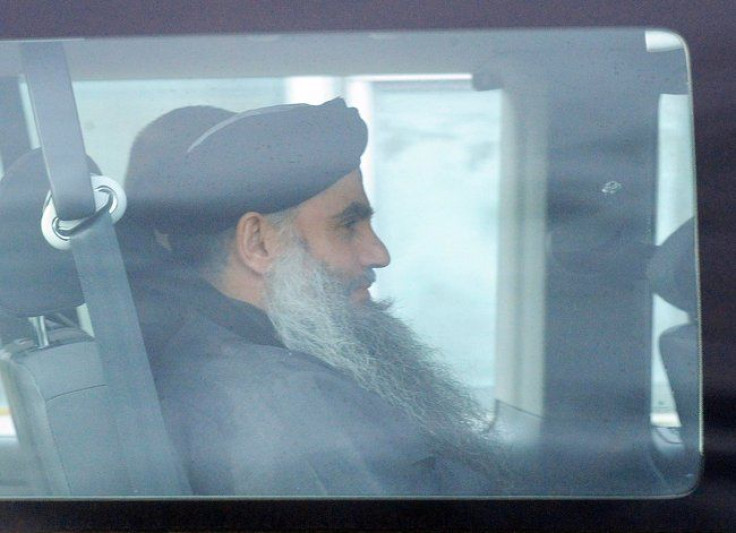Britain Bails Suspected Terrorist Abu Qatada, Government Vows To Appeal

Radical Muslim cleric Abu Qatada, also known as Omar Mahmoud Mohammed Othman, who has been imprisoned in Britain since 2002 for suspected ties to Al-Qaeda, won his appeal on Tuesday against his expected extradition to Jordan, and will be released from jail on bail.
Abu Qatada was never officially charged with any crime while being held in Britain. In May 2012 the European Court of Human Rights overturned a previous decision and allowed for his deportation to Jordan. That decision was overturned today, partly over doubts that Qatada would get a fair trial in Jordan, the BBC said.
Abu Qatada's bail terms currently allow him to roam freely for eight hours every day, the Telegraph said, but he must wear an electronic tag and is restricted with respect to who he can meet.
Howeverm Qatada's bail could be an embarrassment for British Prime Minister David Cameron's administration, and the government quickly dispatched several diplomats to reassure Britons that Abu Qatada's eventual departure from the UK is on the menu. A spokesman for Cameron told the BBC that they are taking "all the steps necessary to ensure Qatada does not present a risk to national security."
Home Secretary Theresa May told the House of Commons that the British government had obtained "assurances from the Jordanian government, not just in relation to the treatment of Qatada himself, but about the quality of the legal processes that would be followed throughout his trial."
"We will, therefore, seek... to appeal today's decision," she said.
She also told The Independent, "I still want him out of the country…We will carry on working with the Jordanian government." May also said she thought the court's decision was a "damaging judgement" for a "warring individual."
British Deputy Prime Minister NIck Clegg told the Telegraph, "We're determined to deport him.We strongly disagree with the court ruling, we’re going to challenge it, we’re going to take it to appeal. We’re absolutely determined to see this man get on a plane and go back to Jordan."
"He doesn’t belong here, he shouldn’t be in this country, he’s a dangerous person," Clegg continued. "He wanted to inflict harm on our country and this coalition government is going to do everything we can to challenge this every step of the way to make sure he is deported to Jordan.”
Cameron himself expressed his outrage over the affair.
"I am completely fed up with the fact this man is still at large in our country, he has no right to be there, we believe he's a threat to our country,” he told BBC.
“We have moved heaven and earth to try and comply with every single dot and comma of every single convention to get him out of this country. It's extremely frustrating and I share the British people's frustration at the situation we find ourselves in.”
Meanwhile, surveillance costs on Qatada could top 5 million pounds (almost $8 million) per year, the Telegraph estimated.
© Copyright IBTimes 2024. All rights reserved.












